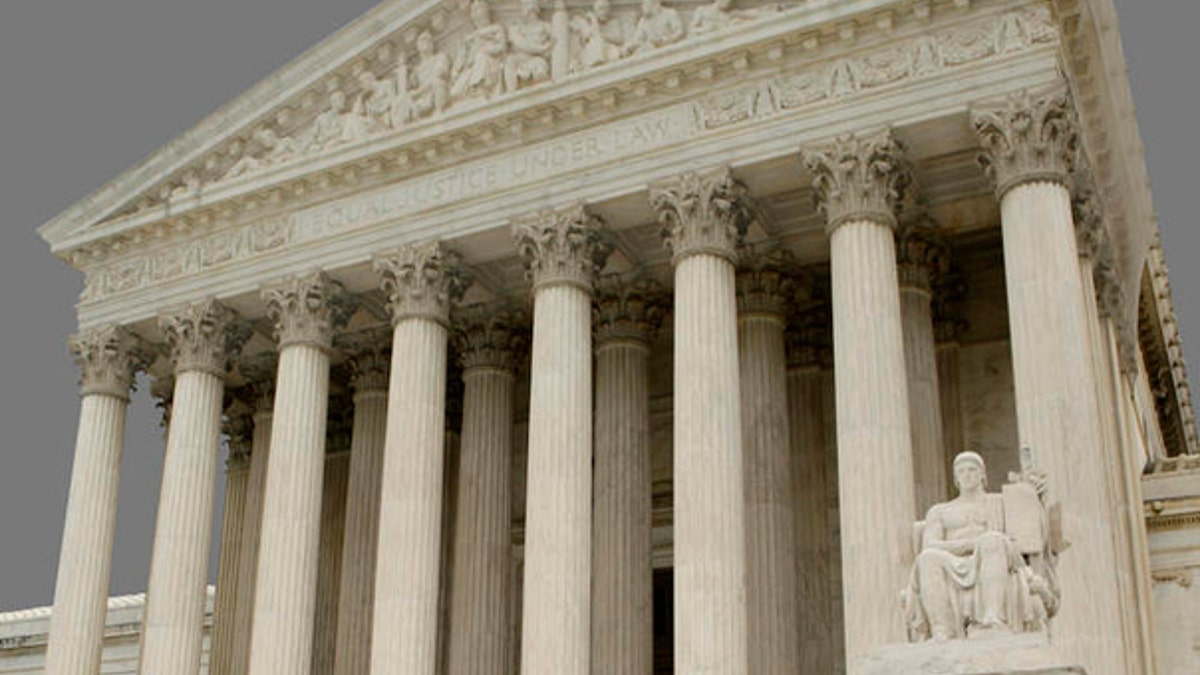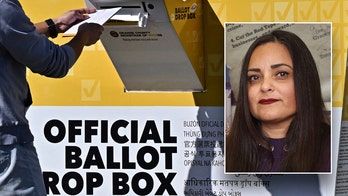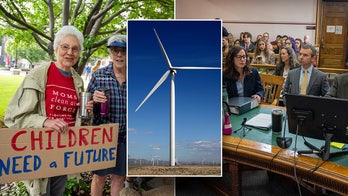
(AP Graphic) (AP2009)
In a stunning reversal of the nation's federal campaign finance laws, the Supreme Court ruled 5-4 Thursday that free-speech rights permit groups like corporations and labor unions to directly spend on political campaigns, prompting the White House to pledge "forceful" action to undercut the decision.
In a written statement, President Obama said the high court had "given a green light to a new stampede of special interest money in our politics." He called it a "major victory" for Wall Street, health insurance companies and other interests which would diminish the influence of Americans who give small donations. Obama pledged to "work immediately" with Congress to develop a "forceful response."
"The public interest requires nothing less," Obama said.
Siding with filmmakers of "Hillary: The Movie," who were challenged by the Federal Election Commission on their sources of cash to pay for the film, the court overturned a 20-year-old ruling that banned corporate and labor money. The decision threatens similar limits imposed by 24 states.
The justices also struck down part of the landmark McCain-Feingold campaign finance bill that barred union- and corporate-paid issue ads in the closing days of election campaigns.
Justice Anthony Kennedy wrote the main opinion, which reads in part that there is "no basis for allowing the government to limit corporate independent expenditures."
"There is no basis for the proposition that, in the political speech context, the government may impose restrictions on certain disfavored speakers," he wrote. "The government may regulate corporate speech through disclaimer and disclosure requirements, but it may not suppress that speech altogether."
Dissenters included Justices John Paul Stevens, Ruth Bader Ginsburg, Stephen Breyer and Sonia Sotomayor.
"The notion that the First Amendment dictated [today's ruling] is, in my judgment, profoundly misguided," Stevens wrote for the others.
"In the context of election to public office, the distinction between corporate and human speakers is significant. Although they make enormous contributions to our society, corporations are not actually members of it," he added.
The ruling is sure to send a jolt to political campaigns throughout the country that are gearing up for the 2010 midterm elections. It will also impact the 2012 presidential race and federal elections to come.
Arizona Republican Sen. John McCain, whose name bears the law that was upended Thursday, said he hadn't read the decision but thought that it was headed that way when he listened to arguments presented last fall. McCain said he does not think it completely repudiates the law he wrote with Wisconsin Democratic Sen. Russ Feingold.
Feingold issued a statement that notes the decision does not overturn the ban on soft money donations to political parties, which can then distribute cash to candidates.
"But this decision was a terrible mistake," he said. "This court has just upended that prohibition, and a century's worth of campaign finance law designed to stem corruption in government. The American people will pay dearly for this decision when, more than ever, their voices are drowned out by corporate spending in our federal elections."
The case involves the film by conservative group Citizens United, which criticized then-presidential candidate Hillary Rodham Clinton during the 2008 Democratic presidential primary campaign.
Citizens United planned to air ads promoting its distribution through cable television video-on-demand services. The FEC said the film amounted to a campaign ad and that Citizens United, an incorporated entity that takes corporate money, could only use limited, disclosed contributions from individuals to promote and broadcast it.
The U.S. Chamber of Commerce, AFL-CIO, National Rifle Association and other groups sided with Citizens United in calling a loosening of restrictions.
"This is a victory for Citizens United, but even more so for the First Amendment rights of all Americans," said Citizens United President David Bossie. "The fault line on this issue does not split liberals and conservatives or Republicans and Democrats. Instead, it pits entrenched establishment politicians against the very people whom they are elected to serve."
In concluding his opinion, Kennedy drew a parallel with concern raised over a movie that many consider a classic, "Mr. Smith Goes to Washington." Kennedy wrote that some government officials tried to discourage the film's distribution. He said people will naturally disagree with the content and meaning of Hillary: The Movie, but "those choices and assessments, however, are not for the government to make."
But watchdog groups like Common Cause and Public Citizen called the ruling a blow to democracy. Public Citizen said it is "going to do everything we can to mitigate the damage from today's decision, and to overturn this misguided ruling."
Feingold said he too is working on new legislation to restore restraints on corporate participation.
Fox News' Lee Ross and The Associated Press contributed to this report.




